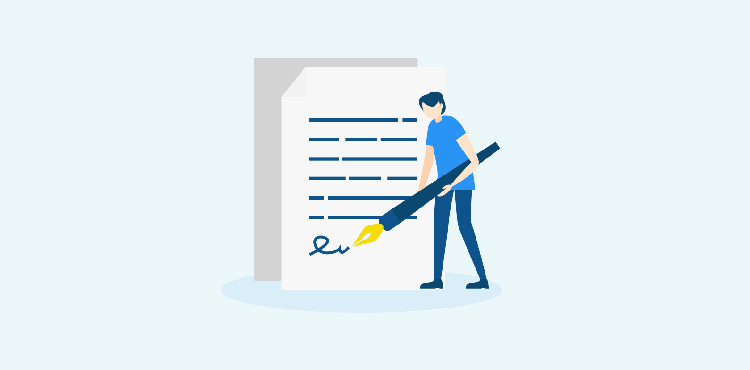In today’s fast-paced and ever-evolving business landscape, Agile methodologies have gained immense popularity for their ability to foster adaptability, collaboration, and continuous improvement.
Agile Coaching plays a crucial role in guiding teams and organisations through this transformative journey, helping them navigate challenges, embrace Agile principles, and unleash their full potential.
Agile coaching is a powerful tool for teams and organisations to help them achieve their goals. It involves working with individuals, teams, and the organisation as a whole to foster an environment of continuous improvement.
This guide provides an overview of agile coaching, its benefits, and how you can use it in your team or organisation. With this comprehensive guide, you will know to create an agile culture that promotes collaboration and effective communication within your group or organisation.
What is agile team coaching?
Agile team coaching supports and guides individual teams to adopt agile principles and practices to achieve their goals and deliver value to the organisation. It focuses on enhancing collaboration, promoting self-organisation, and continuous improvement by creating a culture of transparency, accountability, and innovation.
What does an effective agile coach do?
- He helps the team members understand the Agile principles and Agile values and guide them in their journey towards becoming a self-organising team.
- The coach works with the team to identify areas for improvement and facilitate the adoption of practices that enable the team to develop its capabilities and improve its performance.
- Agile team coaching promotes cross-functional team collaboration and helps teams to overcome obstacles and achieve their goals.
- It also fosters a culture of continuous learning and development, where the team members are encouraged to experiment, take risks, and learn from their mistakes.
- An agile team coach helps the team to understand the importance of empirical process control, feedback loops, and continuous improvement.
- The coach encourages the team to regularly inspect and adapt their processes and practices to ensure they deliver value to the customer and meet their goals.
What is the role of an agile coach in an organisation?
One of the most critical roles of an Agile coach is to help teams to establish effective communication channels and promote cross-functional teamwork. They play an instrumental role in breaking down silos and creating a culture of collaboration. Agile coaches work with teams and organisation leaders to identify areas for improvement, develop strategies, and foster a culture of continuous learning.
Agile coaches also help organisations establish a feedback culture crucial for promoting learning and continuous improvement. They encourage a blameless culture where team members learn from their failures and successes to improve their performance and delivery.
The coach works with the team and organisation leaders to establish metrics that enable teams to measure their progress toward achieving goals and make data-driven decisions.

Another critical responsibility of the Agile coach is to ensure that Agile principles and practices are consistently applied across the organisation. They monitor progress, identify issues hindering Agile adoption, and work with the team and leadership to address them. They facilitate Agile ceremonies and ensure that the team follows Agile methodologies to deliver value to the organisation continuously.
Why do you need an agile coach?
Streamline complex processes
Agile can be a complex and challenging framework to implement, especially if you are new to it. An Agile coach can help you understand the best practices and methodologies to adopt and provide guidance and support along the way.
Expedite results
Agile methodologies can improve your team’s productivity, enhance collaboration, and achieve better outcomes. Agile coaches can work with your team to identify improvement areas and help you implement strategies to achieve your goals
Additionally, by incorporating custom QR codes into your agile practices, you can effectively streamline communication and information sharing within your team.
Boost continuous efforts
Agile methodologies are based on the principles of constant improvement, which means that you are constantly striving to do better.
An Agile coach can help you to establish metrics to measure your progress, identify areas of weakness, and implement changes to improve your processes and practices.
Prevent risk of failure
By adopting Agile methodologies, you can reduce the risk of project failure and ensure that your products and services meet the highest quality standards. Agile coaches can help you implement testing and quality assurance strategies to ensure that your products and services are of the highest quality.
How will you coach the team on agile practices?
Build frameworks
The first step in coaching the team is to create a framework for Agile implementation that aligns with the team’s goals and business objectives. Considering its size, structure, and scope, this framework should be tailored to the team’s needs.
Conduct workshops
The Agile coach should also ensure that team members understand the Agile principles and values and how they apply them to their work. The coach should facilitate workshops and training sessions that enable team members to practice Agile techniques and tools in a safe environment.
Enhance collaboration
Another critical aspect of coaching the team on Agile practices is to promote collaboration and communication among team members. Agile methodologies rely on self-organising teams that work together to achieve common goals.
Work on weaknesses
The coach should also facilitate regular Agile ceremonies, such as sprint planning, daily stand-ups, sprint reviews, and retrospectives. These ceremonies enable the team to stay aligned, identify issues and opportunities, and continuously improve their processes and practices.
Create realistic metrics
The coach should establish metrics to measure the team’s progress and performance to ensure continuous improvement. Metrics such as velocity, cycle time, and lead time enable the team to track their delivery and identify areas for improvement.
What are the different types of agile coaching?
Scrum coaching
Scrum coaching is one of the most popular types of Agile coaching. Scrum is an Agile framework focusing on the iterative and incremental delivery of products and services. Scrum coaches work with teams to implement Scrum masters frameworks effectively.
They help teams to define their product backlog, organise their sprints, and conduct daily stand-up meetings. Scrum coaches are also responsible for creating a culture of collaboration, continuous improvement, and learning.
Lean-agile coaching
Lean-Agile coaching is another popular Agile coaching approach. Lean-Agile combines the principles of Lean and Agile methodologies to deliver value to customers faster. Lean-Agile coaches work with teams to identify waste and optimise processes to improve efficiency and productivity.
They help teams to adopt Lean-Agile methodologies, such as Lean thinking, Agile development, and DevOps, to deliver high-quality products faster.
Kanban coaching
Kanban is another Agile framework that visualises work, limits work in progress, and optimises flow. Kanban coaches work with teams to implement Kanban boards, visualise their workflow, and identify bottlenecks. Kanban coaches use cycle time, lead time, and throughput metrics to help teams optimise their processes and increase efficiency.
Enterprise agile coaching
Enterprise Agile coaching is focused on scaling Agile methodologies to larger organisations. These coaches work with multiple teams across different departments to implement Agile methods at scale.
They help organisations to create Agile Release Trains, align their work with business objectives, and adapt to changing market conditions. Enterprise Agile coaches also work with senior leaders to develop a culture of continuous improvement, drive innovation, and deliver value to customers.
What are the values of an agile coach?
Servant leadership
Agile coaching is about serving the team and helping them to achieve their goals. Servant leaders prioritise the needs of the team over their own needs. They listen actively, empathise with team members, and encourage creativity and innovation. Servant leaders empower the team to make decisions and take ownership of their work.
Collaboration
Collaboration is essential for Agile teams to function effectively. Agile coaches facilitate collaboration by creating a safe and supportive environment that encourages communication and teamwork. Coaches help teams to resolve conflicts, build trust, and develop a culture of respect and transparency.
Continuous improvement
Agile methodologies emphasise continuous improvement, and Agile coaches must embody this value. Coaches encourage teams to experiment, learn from their mistakes, and adapt to changing circumstances. They help teams identify improvement areas, set goals, and measure progress.
Agility
Agile coaches must be agile themselves. They must be able to adapt their coaching approach to meet the specific needs of each team. They must be flexible, open-minded, and willing to learn. They must also be able to handle ambiguity and uncertainty.
Expertise
Agile coaches must deeply understand Agile methodologies, principles, and practices. They must have experience working with Agile teams and be able to provide guidance and advice based on their experience. Coaches must also have strong facilitation and communication skills and the ability to build relationships with team members.
Agile coaching techniques
Agile assessments
Agile coaches use Agile assessments to evaluate a team’s current state and identify areas for improvement. There are different types of Agile assessments, including Agile maturity assessments, Agile health checks, and Agile readiness assessments. These assessments help Agile coaches to understand a team’s strengths and weaknesses and develop a plan to help the team improve.
Retrospectives
Retrospectives are typically held at the end of each iteration or sprint and involve the entire team. Agile coaches facilitate retrospectives and use various techniques such as timelines, starfish diagrams, and open discussions to encourage team members to share their feedback and ideas for improvement.
Facilitation
Agile coaches must be skilled facilitators to help teams work together effectively. Coaches use various facilitation techniques such as brainstorming, dot voting, and affinity grouping to help teams collaborate, generate ideas, and make decisions.
Agile games and simulations
Agile coaches use games and simulations to help teams learn Agile concepts and practices in a fun and engaging way. Agile games and simulations help teams to understand complex Agile principles such as Lean thinking, continuous improvement, and customer collaboration.
Mentorship
Agile coaches act as mentors to help team members develop their Agile skills and knowledge. Coaches offer guidance, advice, and support to team members and help them to overcome obstacles and challenges. Coaches also provide feedback, help team members identify areas for improvement, and offer suggestions for improving their performance.
What is an agile coach vs. a scrum coach?
Agile coaches work with teams to help them become more adaptable, collaborative, and customer-focused.
On the other hand, Scrum coaching is a more specific role focusing on coaching teams using the Scrum framework.
Depth and specialty
One of the key differences between Agile coaching and Scrum coaching is the level of depth and specificity. Agile coaching focuses on broader Agile principles and practices, while Scrum coaching focuses on the Scrum framework. However, both roles require a deep understanding of Agile principles and the ability to coach and mentor teams effectively.
Team involvement
Another difference between Agile coaching and Scrum coaching is the level of involvement. Agile coaches may work with multiple teams across an organisation or may work with an entire organisation to help them adopt Agile practices. On the other hand, Scrum coaches tend to work more closely with individual Scrum teams to help them implement Scrum practices effectively.
Top ways an agile coach can help a project manager
Facilitating team collaboration
One of the primary roles of a person with an Agile coach certification is to facilitate teamwork and collaboration. Project managers can rely on Agile coaches to enhance team communication, foster collaboration, and improve team dynamics. By promoting an Agile culture that values teamwork and collaboration, Agile coaches help project managers to manage their teams effectively.
Facilitating agile ceremonies
Agile ceremonies, such as daily stand-ups, sprint reviews, and sprint planning, are critical to the success of Agile development. An enterprise Agile coach can help project managers facilitate these ceremonies better. Coaches can guide the structuring of these activities, allowing project managers to keep meetings focused and productive.
Improving agile processes
Agile coaches work with teams to identify areas for improvement and continuously refine Agile processes. Project managers can leverage the expertise of Agile coaches to streamline workflows, enhance delivery times, and improve product quality. Agile coaches review and assess the team’s Agile processes and can provide recommendations and guidance on improvements that will most impact project success.
Providing agile training
Agile coaches can provide Agile training to project managers, helping them better understand Agile principles and practices. Agile coaches can deliver tailored training sessions that build project managers’ knowledge and skills in Agile development, methodologies, and frameworks.
Coaching on change management
Change management is essential to Agile development, especially for project managers tasked with leading change initiatives and managing online reputation. Agile coaches play a crucial role in this process, working closely with project managers to help them navigate change effectively.
By leveraging their expertise, an Agile coach can guide project managers on how to effectively communicate the need for change, manage online reputation, and motivate team members to embrace new ways of working. With their guidance, project managers can foster a culture of adaptability and ensure smooth transitions throughout the Agile journey.
In Summary
Ultimately it is up to each organisation or project manager to decide if they need an agile coach; however, those who choose that this type of support could be beneficial should be quick to take advantage of its potential benefits.
About the Author
Joe Troyer is the Founder of Digital Triggers. He is a leading expert in all things Internet marketing: Pay per click marketing, search engine optimisation, Google business, reputation management, landing page conversion, and call tracking.


